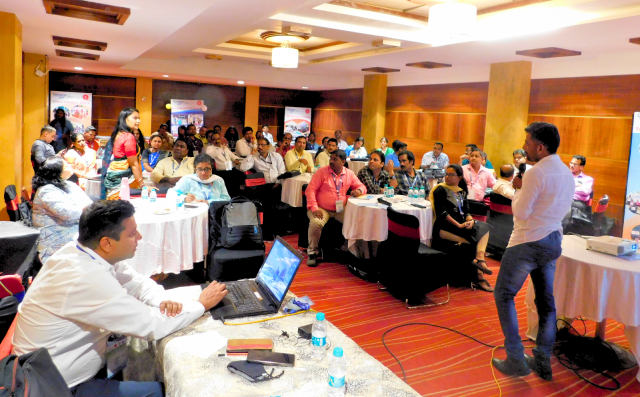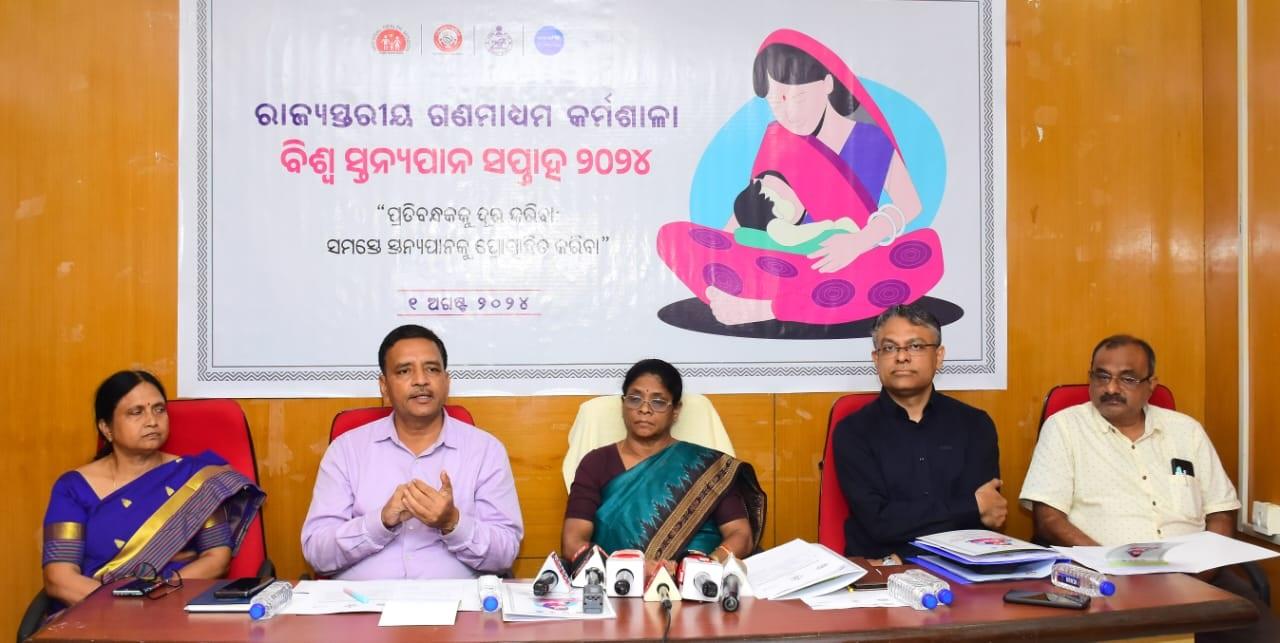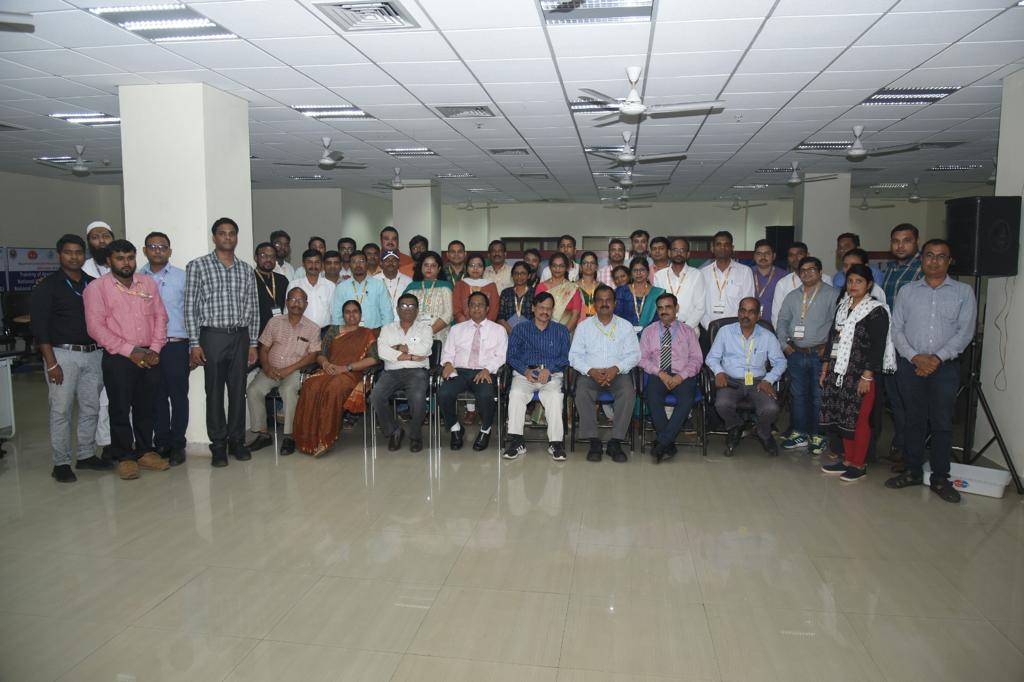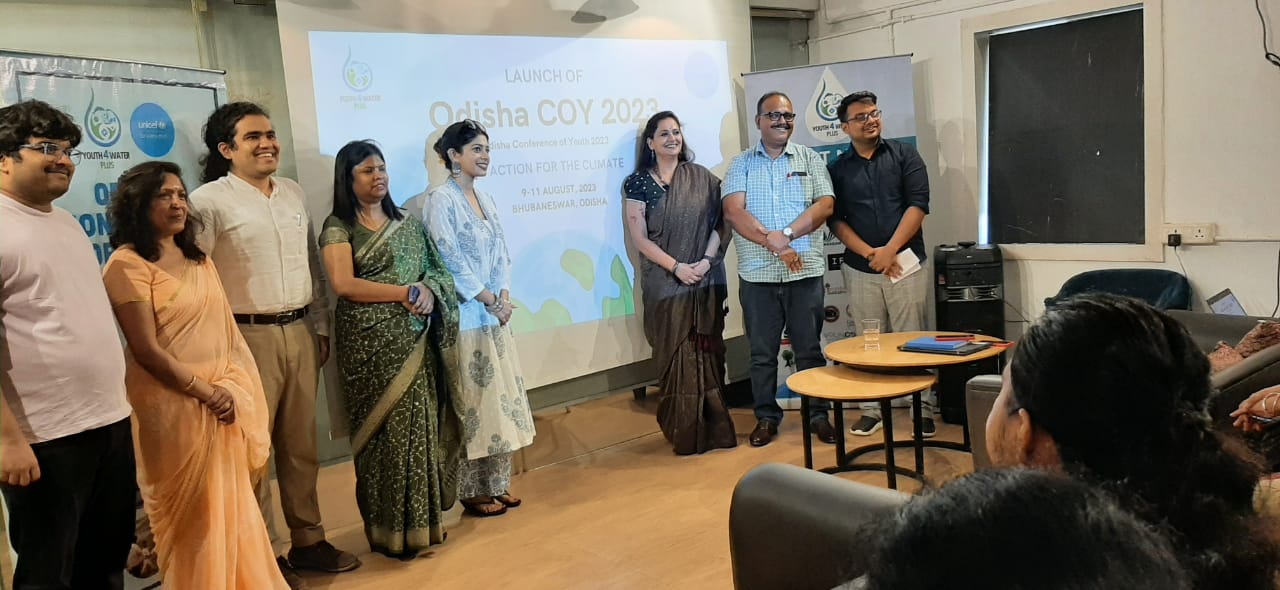New Delhi: According to the United Nations Children’s Fund (UNICEF), India has 29.6 million orphaned and abandoned children. While a safe and secure environment is a prerequisite for any child, there are millions who are less fortunate. The ones born into abject poverty and facing varied deprivations are forced to live in short- or long-term residential care in Child Care Institutions (CCIs) by families. Many of these children have families and a 2018 Government of India Report also revealed that most children living in CCIs have a single parent. Furthermore, nearly 200,000 children in India lost at least one caregiver to COVID-19, rendering them vulnerable to family separation and long-term institutionalization, while impeding their chances to thrive in a safe environment.
CRS’ flagship initiative, Changing the Way We Care (CTWWC) along with its implementing partner, ARUNA, proudly collaborated with the Department of Women and Child Development (DWCD) Odisha and UNICEF, for a two-day state-level consultation in Puri, Odisha, to deliberate over the challenges and opportunities linked to promoting Non-Institutional Care (NIC) and family-based alternative care. Guided by the Government of India’s landmark Mission Vatsalya scheme, the workshop aimed to contribute to the state’s endeavors to strengthen family-based care for a better and brighter future for vulnerable children in Odisha.
The eastern state of Odisha has been on the path of building groundbreaking milestones for the well-being of children and is committed to providing a nurturing and safe environment for their growth and protection. For the first time since the Covid-19 pandemic, the mega statewide consultation saw robustparticipation of District Child Protection Officers (DCPO) from all 30 districts in the state. Additionally, members of the Odisha State Child Protection Society (OSCPS), senior government functionaries, experts, district consultants, and practitioners in the field of care reform at the state and national levels exchanged knowledge and discussed opportunities to promote NIC and family-based care.
“The Government of Odisha has made huge strides in the journey of care reforms in the state in the past few years. Since 2020-2022, the number of Child Care Institutions has reduced from 450 to 229 – and that is a feat. This reflects the Government’s resolve and commitment to the principle of Juvenile Justice (Care and Protection of children) Act that mentions institutionalization to be the last resort. Capacity building workshops such as the one we had in the last two days are very effective for the child protection workforce to reflect, sharpen their skills, exchange, and learn best practices from each other.
This in turn will help them to better implement the policies and programs in the field ensuring the best interest of the children.” said Ms. Neha Naidu, Child Protection Specialist, UNICEF Odisha.
“The state level workshop is a significant platform to understand the opportunity for promoting Non-Institutional Care and family-based alternative care laid down in Mission Vatsalya. Also, it offered an opportunity for DCPUs and civil society organizations to come together to deliberate and harness experiences to efficiently work together for the betterment of children. Together with key stakeholders including government agencies, civil society, UN, and others, we can collectively support families to stay
together and live a life based on the foundation of dignity and resilience,” said Mr. Senthil Kumar Gurunathan, Executive Director, CRS India.
“A safe and functional family is the bedrock of a child’s growth, survival, and optimum development. Efforts toward the non-separation of children from their parents or next of kin are critical, and all separation must be necessary and in the best interest of the child. At this vital junction, the workshop helped to bring Government stakeholders and care reform practitioners/experts under one platform. At present, CRS through the CTWWC initiative is partnering with UNICEF to develop and operationalize the District Action Plan (DAP) on Family strengthening and Alternative care for children in the 10 districts,” explained Mr. Lokanath Mishra, Executive Director, ARUNA.
“CRS through the CTWWC initiative has done extensive work in the district of Ganjam in Odisha on Family Based NIC since 2017. The initiative is designed to promote safe, nurturing family care for institutionalized children or at risk of child-family separation. We are helping children in care reunite safely with their communities.”, mentioned Ms. Jomey Joseph, Head of Office – South for CRS India Program.


















